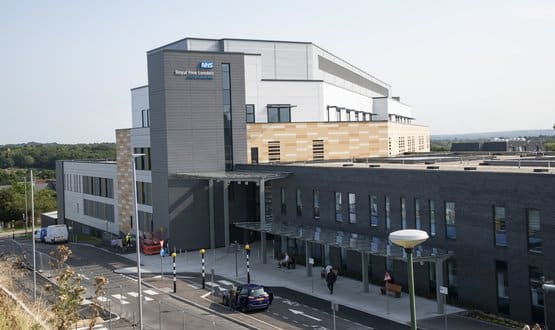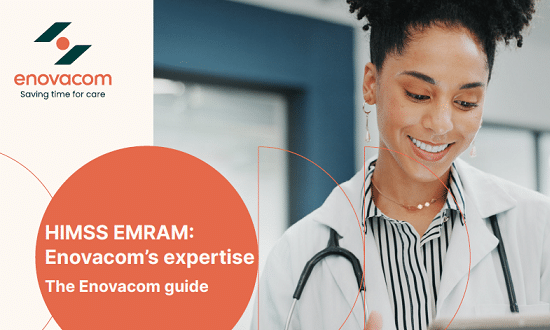HIMSS Level 7 ‘not a badge for IT’ for Royal Free London
- 12 May 2022

The chief digital officer at Royal Free London NHS Foundation Trust has said that the trust has treated a recent HIMSS Level 7 accreditation as “not a badge for IT” but rather a “proxy for better care”.
In March 2022, Chase Farm Hospital was awarded EMRAM Stage 7 from the Healthcare Information and Management Systems Society (HIMSS).
Speaking to Digital Health News, the trust’s chief digital officer, Glenn Winteringham, said that in order to help engage staff with digital, the trust made sure the changes were marketed in the right way.
“HIMSS doesn’t necessarily mean much to clinicians, but it is a global standard for measuring digital maturity,” he said.
“We’ve adopted it [HIMSS] as a proxy for better care, for higher quality care and safety and we don’t see it as a badge for IT.
“What we convey is that if you achieve these high levels of digital maturity, you’re scanning your patients, you’re scanning your prescriptions, you’re checking your medication, you’ve got good cyber security – all of that means you are going to deliver better, safer, faster care.”
Investing to digital leadership
Achieving HIMSS Levels 6 and 7 formed part of the Royal Free London’s programme of being a Global Digital Exemplar (GDE). The programme aimed to a create a “cohort of digitally advanced exemplar provider organisations” which were then expected to pass their learnings to “less digitally-mature ‘fast follower’ provider organisations (FFs)” in a bid to enable large-scale digital transformation across the NHS in England.
Part of the Royal Free London’s GDE funding has helped the trust invest in digital leadership, which Winteringham believes has supported their HIMSS accreditation. This included chief medical officers, a chief nursing information officer and allied health professionals.
“The clinical informatics team has been absolutely fundamental because they are frontline clinicians who are using the same solutions, so they are a bridge between the digital team, the management programme and the end user experience,” Winteringham said.
“They became absolutely key – front, line and centre – explaining why we were doing this and the benefits.”
As well as investing in leadership, Winteringham added that having support from all levels of the organisations played an important role.
“You need amazing leadership in your organisation, you’ve got to have chief execs and the whole of the executive team interested because it is a change programme, not an IT programme,” he said.
Winteringham added that having support from the executive teams is important because it shows commitment “from the top”.
Changing the culture
Another aspect of the Royal Free London’s digital programme has been altering the culture of the trust, Winteringham explained, adding that being open played a big part.
“We had some really important phrases from the project and one of them was ‘being open and transparent with each other’ and setting certain expectations,” he said.
“If things weren’t going well, be open and admit that failure is okay.
“We also wanted to be open and transparent with our supplier and treat them as a partner rather than a vendor. It’s all great when things are going well but when things aren’t going well, don’t pull the contract out as a first resort, try and resolve collaboratively as it’s a very long partnership.”
“Things will always go wrong on a big change programme but don’t blame people, focus on the problem.”
Next steps
Looking ahead, Winteringham said priorities for the trust include further enhancements to their Integrated Care System (ICS) wide information shared record and, population health management solutions, as well as developing the trust’s patient portal.
Finally, Royal Free London is planning for their two other hospitals, Barnet Hospital and the Royal Free Hospital to attain HIMSS EMRAM Level 6 in 2023/24.




